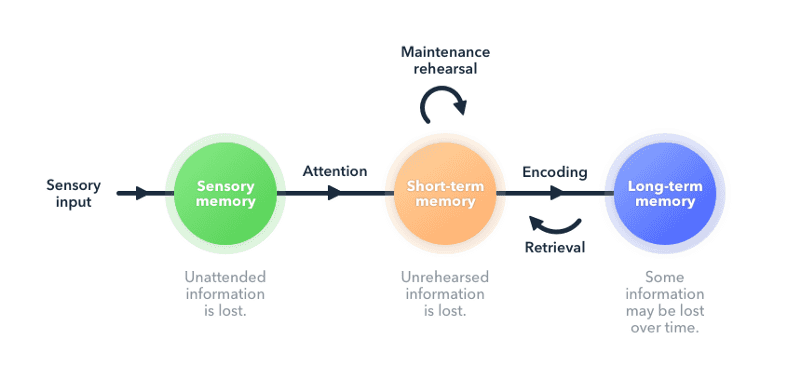
Pedagogical series: your new testimonial series!
Join live sessions featuring real use cases shared by our users.
Improve long-term learning with retrieval practice
16.10.2018 • 4 minutes

Retrieval practice is a well-known learning method that can help students study more effectively by simply trying to recall information that has been previously stored in long-term memory. It is straightforward, easily implemented, and can greatly improve learning, because:
- Trying to recall a memory can modify, reorganise, and consolidate it better in our long-term memory.
- Trying to recall something creates new retrieval pathways to that memory, making it easier to retrieve later on.
- By searching for a memory, we tend to activate information connected to it. This links it in a more networked and organised structure for easier future access.
How does retrieval practice work?
“Calling information to mind” means bringing it into our working memory. So, to understand retrieval practice, we have to understand how memories are made, which was the topic of a previous article.

How long-term memories are made
In short, we create long-lasting memories by linking new information (in our working memory) to knowledge we already possess (in our long-term memory), a process called active learning. Practicing active memory retrieval can improve memory and boost learning.
Cognitive scientists have found that, instead of highlighting parts of a text or taking notes, students can improve memory and learning more effectively through retrieval practice. In essence, after reading new material for the first time, students try to recall the most important information it contained without looking at either the text or their notes. Once they have completed the retrieval, they check the material for feedback on how accurate and complete their retrieval was.
Trying to recall information may sound more difficult than re-reading a text or looking at notes, which it is, but that very struggle to recall is what improves our memory. Here are 4 reasons why:
- The act of retrieving a memory modifies it. When we try to remember something, we’re not choosing from a selection of existing memories. Instead, we piece it together from the memory traces that constituted it when it was originally created. This struggle to retrieve and reassemble a memory usually strengthens it.
- By searching for a memory without the help of external triggers like notes or a text, we are creating a new retrieval pathway to find that memory. That way, we won’t need any external triggers to find this information the next time.
- When searching for a memory, we are also likely to retrieve related information. This can help organise memories and link them in ways that might make it easier to retrieve them later on.
- When we fail to retrieve the intended information, this failure can be useful. It shows which information requires additional studying, to further strengthen the memory and make it more likely to be retrieved in the future. Retrieving memories is more powerful than re-reading notes or passages, mainly because when re-reading our notes, the retrieval cues come from external sources. In other words, less effort is required to find the information. This ease of recognition makes us feel like we are learning more, when we are actually learning less, especially in the long-term.
Best practices concerning retrieval practice
- First, it is important for students to receive feedback about the accuracy and completeness of their retrieval practice. That feedback can come from the teacher, classmates, or the course material.
- Retrieval practice should not be graded, to encourage students to use this learning method whenever they can, rather than linking it to stress and performance anxiety. As students become used to and confident in retrieving what they know from their memory, retrieval practice can even reduce anxiety.
- Students must have something in memory to retrieve in the first place. They need to know how to create durable memories while studying, and make sense of new information by using their prior knowledge and clues from course materials.
- Effective retrieval practice is difficult and involves struggle. Students need to know that this struggle is beneficial, because it means that learning is taking place.
Content drawn from “The Science of Learning — What Every Teacher Should Know”, EdX: https://www.edx.org
Writer

Gauthier Lebbe
Content Editor @Wooclap. I love to write, learn, write about learning, and learn about writing. And hit readers with puns they don't see coming. You know, sucker puns.
Subject
A monthly summary of our product updates and our latest published content, directly in your inbox.



